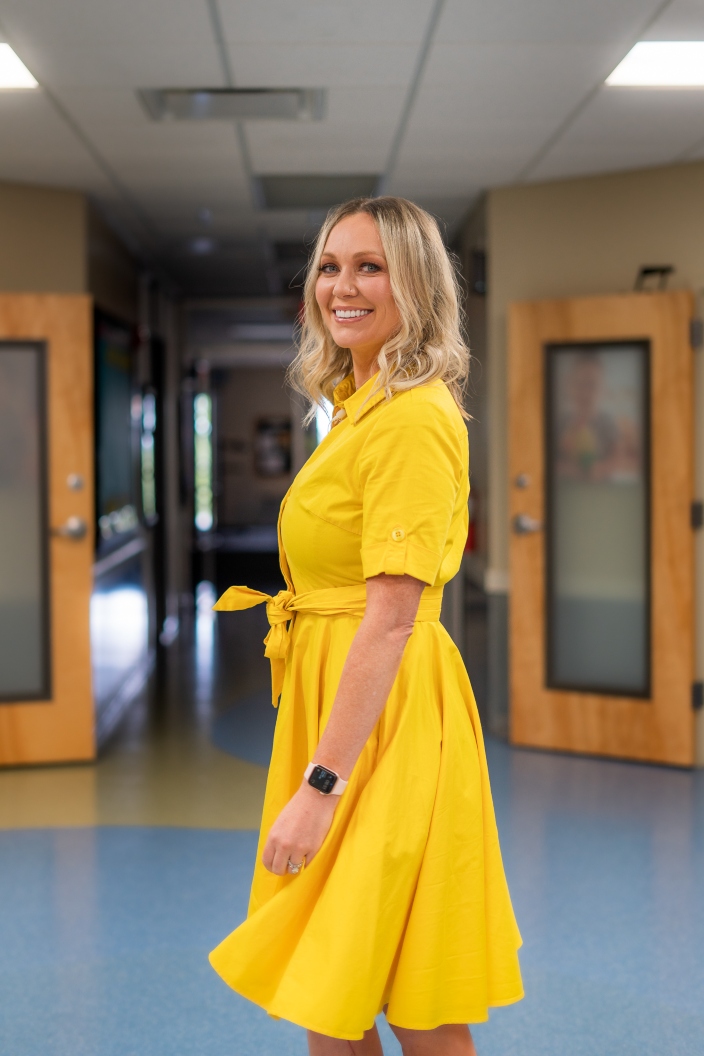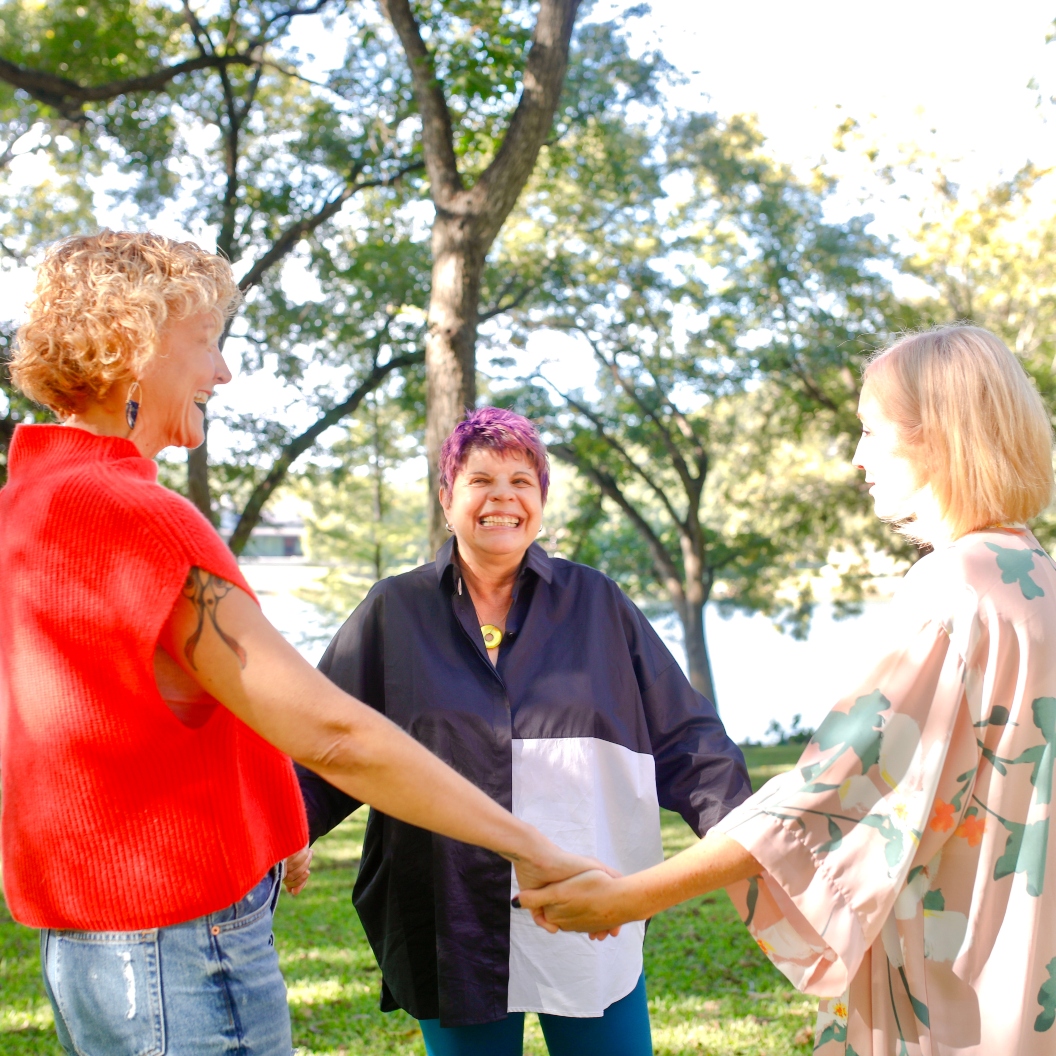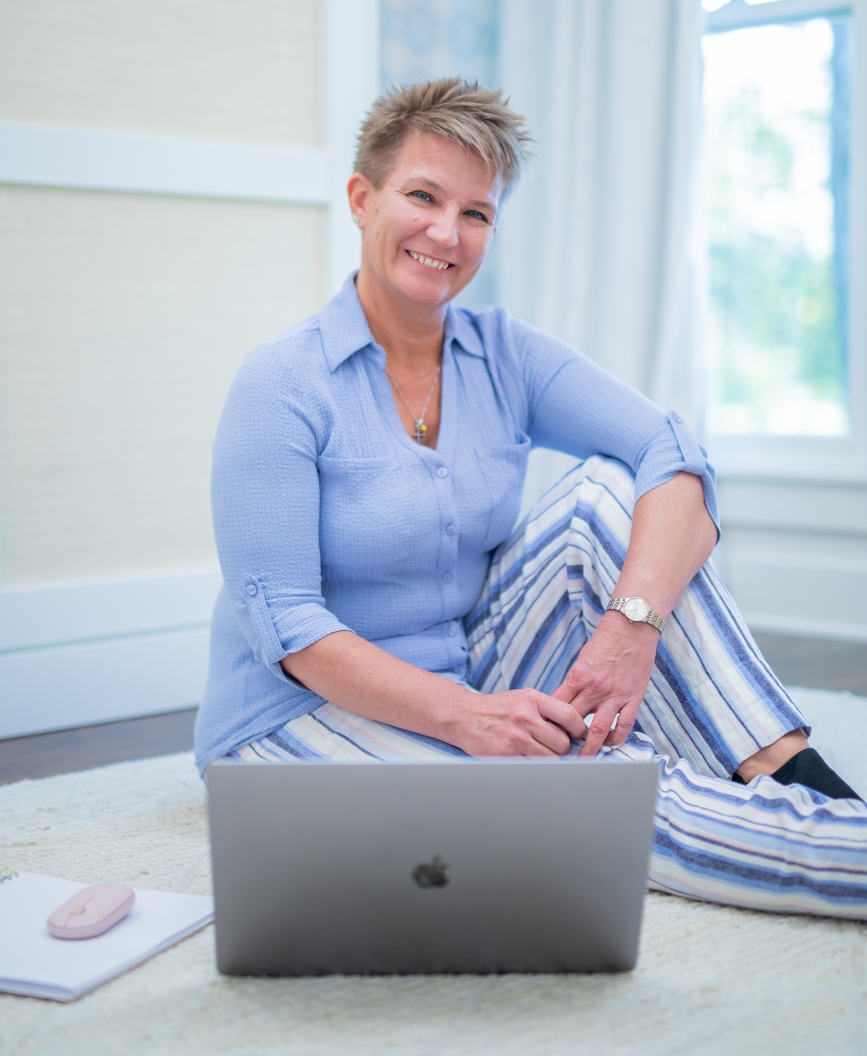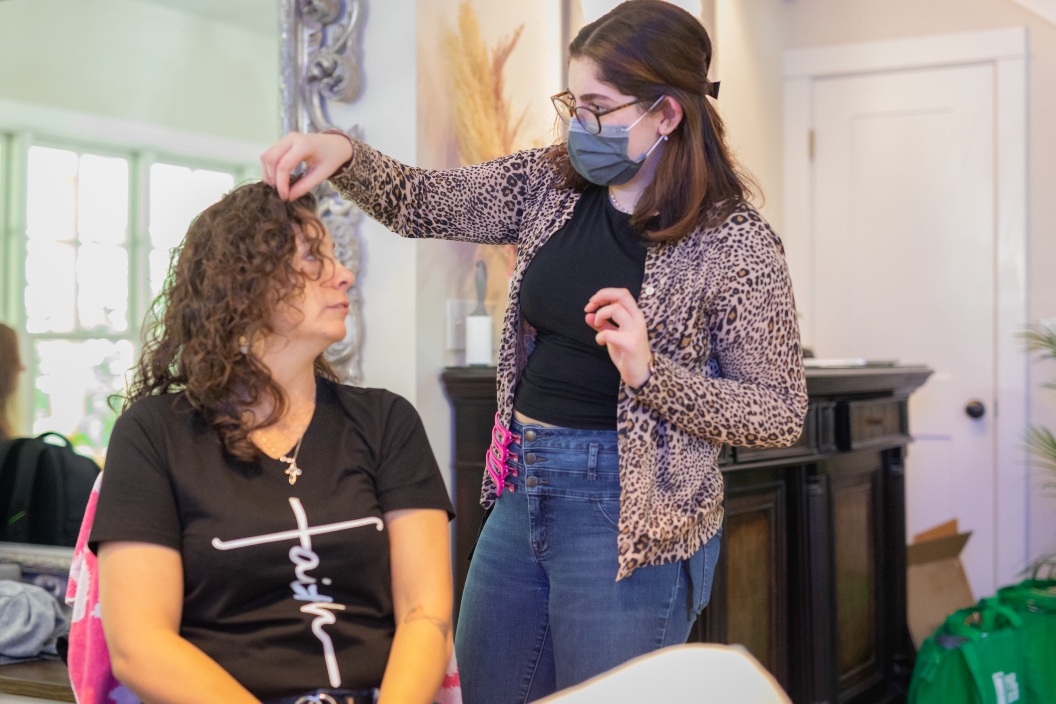Local nonprofit Truth Be Told helps the growing number of incarcerated women build a foundation of self-worth and accountability.

By Stacy Ingram Kaleh, Photos by Angie Hejl
When you think about the Texas prison system population, women may not be the first inhabitants that come to mind. However, women make up the fastest growing segment of the incarcerated population across the nation. Many programs that serve people who are incarcerated were designed for men. Some have made adaptations to those programs for women. But Truth Be Told, a 501(c)(3) nonprofit organization based in Austin, takes a different approach. They serve incarcerated women in Texas with programs designed specifically for them by other women.
With a vision to break the cycle of incarceration and restore integrity to all women involved in and affected by the justice system, Truth Be Told leads with heart. The organization provides transformational trauma healing for women behind and beyond bars. They embrace values including community, authenticity, respect, empathy and strength to offer tools for community-building, self-care and emotional well-being, creativity and effective communication. Female volunteers who have experienced literal and/or metaphorical “prisons” in their own lives enter correctional facilities to serve and grow alongside incarcerated individuals. Preparing them for life after prison and providing them with a judgement-free network of trusted partners.
Truth Be Told
Truth Be Told’s programs, which they offer in-person and virtually, work for Texas women. Approximately 86% of their program graduates remain free three years after incarceration. This is the benchmark for success in breaking the cycle of re-incarceration. Yet the need for the work Truth Be Told does is ever-growing. In fact, over the past two decades, there’s been a 700% increase in the number of incarcerated women nationwide.
According to The Sentencing Project, in 2019, the number of incarcerated women was up to 222,455. As of last year, more than 70% of Texas women in Truth Be Told identified as mothers. The organization’s resources also show that about 70% of children with incarcerated parents will end up incarcerated themselves at some point during their lives. So, incarcerating one woman could mean incarcerating a family more often than not, with far-reaching implications for her entire family network. With more women to serve and an increasingly challenging cycle to break, the nonprofit is stepping up to lay the groundwork for systemic change in our community.
Heather Emerson

Interim Executive Director Heather Emerson says a key to helping women heal from trauma is having witnesses to their story. “We create safe spaces for women to write their own story. To tell their own story and not let a label or society or whatever noise is coming externally affect their experience.”
Emerson understands from firsthand experience the unique challenges incarcerated and previously incarcerated women face when aiming to re-enter society and make valuable, positive contributions. After being incarcerated for one year, she spent 15 years rebuilding her life. She now has dual degrees from The University of Texas, a master’s degree from Harvard University and co-founded local sustainable meal delivery service Prep to Your Door, a plant-based service that prioritizes planet over profit.
The Truth About Incarcerated Women
After serving on the Truth Be Told board of directors, she stepped down and then up into the interim leadership role to devote her time and talents to helping other women succeed and create positive change as she has.
Emerson explains the complex and often painful labor of getting to the root of a systemic issue.
“Between 75 to 95% of all incarcerated humans experienced some sort of sexual, emotional or physical abuse as a child. I personally haven’t met a single one who hasn’t experienced that as a child. That’s anecdotal. But it’s very common,” she says. “What we’re doing here is breaking generational trauma. So when you ask the question, ‘What are some of the things you’re trying to overcome?’
“I can speak from personal experience that, as a child, when you have the burden of sorting through what you didn’t deserve, you’re not emotionally equipped to process that. So you go into fight-or-flight, you go into survival, you don’t make rational decisions because of this trauma. And the cycle just continues and continues.”
“What Got You Here?”
Several of the programs Truth Be Told offers center around the question, “What do you think got you here?”
They encourage women to go deep. Beyond the act that resulted in a conviction and back to their childhood, relationships and the trauma and environmental factors that led them to make certain decisions. Working through this question helps strengthen inmates’ self-understanding, personal responsibility and the impact of their choices.
“Whenever we hear the stories of these women, what I think is so powerful is that in storytelling we shift from blame and victimhood to resilience and accountability,” Emerson remarks. “You can rewire your brain and tell your story differently. How we understand and tell the story of our past affects our future. So the challenge is, how do you hear a story of abuse of a child and still guide and empower that human to embrace it and use it as empowerment for a different future for themselves, their children, their loved ones and for their community? You hold space and you acknowledge and you say, ‘How can I help?’”
She emphasizes the power of story. That sometimes people just need to be heard to understand how the narrative they tell themselves makes a difference.
The Trust Circle

While Emerson is passionate about the long-term benefits of owning your story, she also acknowledges that it’s a challenging learning process. One of the methods Truth Be Told has designed to help women navigate the process includes the “Talk to Me” trust circle. Where women are invited to hold hands while sharing deeply personal insights. It’s just one example of the gender-responsive programming that Emerson says takes into account how it can be more intuitive for many women to be open to emotion and vulnerability and to be heart-led in this kind of space. The trust circle format breaks down barriers.
“One of the hurdles we’re up against is really understanding what led to someone’s being in prison” she says. “What we find is that people can trace back their actions, decisions and environment years before they ever were incarcerated. And they realize that years before they were in a different kind of prison. They were in a cycle of self-destruction. So that’s the ‘Aha!’ moment and the accountability piece, and then the next person says, ‘I see you, ’cause me too.’
“It’s really powerful and gut-wrenching and brings on a mix of heartache and joy in the same moment. The heartache is, I can’t believe you lived through that. The joy is, you don’t have to live through that anymore.”
Emerson holds back a tear as she describes these complex epiphanies.
Sustaining Self-Love
When asked what the organization hopes women will take away from the experience in their programs, Emerson states, “We want the women to have different relationships in their lives. Starting with their relationship with themselves.”
The organization has many offerings to ensure that these new relationships are sustainable, both during and beyond life in prison. There are a number of support systems in place for graduates of the programs. From weekly check-in calls to a dedicated staff person available to answer calls and provide direct support around the clock.
In addition to self-expression skills, programs also inspire inmates to take initiative and exemplify leadership by creating a healthy, vulnerable and authentic community where each participant can serve as both mentee and mentor.
Sandra Roller Finds Truth Be Told
Sandra Roller, a former Truth Be Told program participant and current mentor, considers this trusted network to be a key takeaway and lasting benefit of her experience in the program. “I now have this unconditional, non-judgmental support system,” says Roller. “If I have a bad day, I know who to call, email or reach out to.”
Roller discovered Truth Be Told when a flyer for one of their classes was posted on a bulletin board in the facility where she was incarcerated. “At first, I signed up just to do anything to get out of the cell,” she explains. She now describes her experience as “life-changing.” “I had to ask myself, ‘Do I really wanna know who I am? Do I really wanna dig up some dirt?’”

Prompted with those questions, Roller dove deep into the self-reflection she describes as a “journey.”
“At first I was nervous sharing personal things with people I didn’t know,” Roller says. “Each class we would have three to five minutes to dump write and then were either asked to share what we wrote. Or sometimes we were asked to throw it away.”
Throughout the program, she became less nervous, built meaningful relationships founded in trust and began to ditch the concept of “normal.” (“What is normal? Everyone is dysfunctional in some way.”) During her journey, Roller learned how to be more accountable for her actions. She also defined her reasons for wanting to be accountable—her children, coworkers and community.
“For me, it’s about the impressions I leave with people. It’s about helping the next person and being kind.”
A Supportive Network of Sisters
After she was released, Roller found herself facing many challenges as she searched for a job. “I felt closed off from society. Background checks were a barrier,” she says. Then she connected with a Truth Be Told mentor who helped her find employment and get involved in the hospitality industry. She started serving weekend breakfasts in a hotel and after showing initiative, has since become a general manager.
She walked out of prison and into her future with what she calls a “toolbox,” a supportive network of “sisters” and a desire to pay it forward. She’s involved with the Truth Be Told Beyond Bars program and sharing her story to help others. Roller shares her personal mantra: “I strive to be better today than I was yesterday.”
Beyond helping individuals like Sandra Roller secure a bright future, Emerson also hopes the work Truth Be Told does, including an upcoming influencer storytelling campaign, can help shift public perception of incarcerated women. “I think a lot of people have this mentality of ‘us’ versus ‘them,’ and that [incarcerated women]deserve it. But the reality is that when you hear these women’s stories you would say, ‘Oh, that could have been me.’”
This month, the Truth Be Told influencers explore the topic of each of us being just one decision away from incarceration on social media.
Help Truth Be Told Help Others

Through gender-responsive services, Truth Be Told addresses an important disparity in the prison system and gives women the skills to reclaim their lives, take ownership over their futures and, ultimately, to contribute to making Central Texas the place we love to call home.
As a volunteer-driven organization, anyone can help advance the Truth Be Told mission. Sign up to volunteer as a facilitator and train to help lead programs or participate in the “Write to Me” program, an iteration of the “Talk to Me” program developed during the pandemic lockdowns, as a penpal.
You can also donate online. When it comes to giving, every donation counts. “[The cost of] a cup of coffee a month is still life-changing,” says Emerson. “We have people who have been giving small amounts on a recurring basis for a decade, and that adds up over time.”
As they celebrate their 21st anniversary of service this year, the nonprofit aims to raise $100,000 to fuel an expansion in 2022 during their end-of-year fundraiser, running from Nov. 30 (Giving Tuesday) through Dec. 9.
Get Involved
Donate
secure.givelively.org/donate/truth-be-told/raising-100-000-in-10-days
READ MORE FROM THE DECEMBER ISSUE

